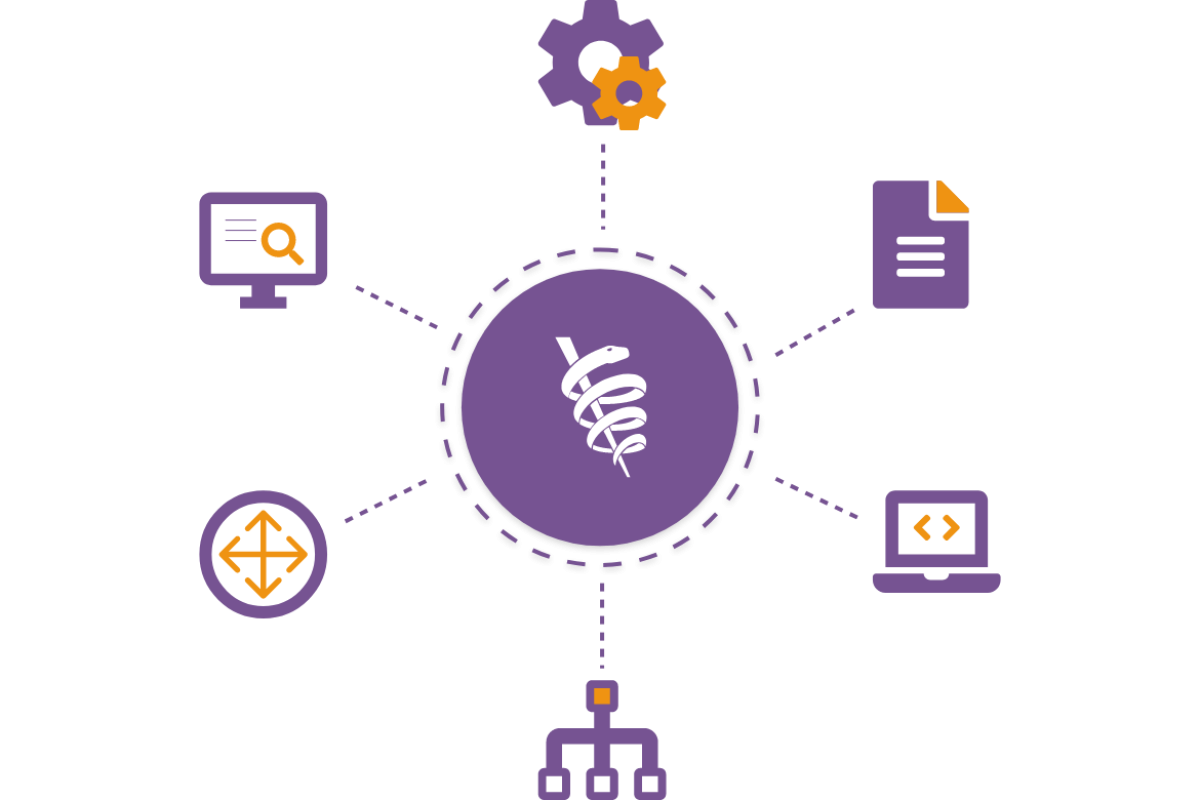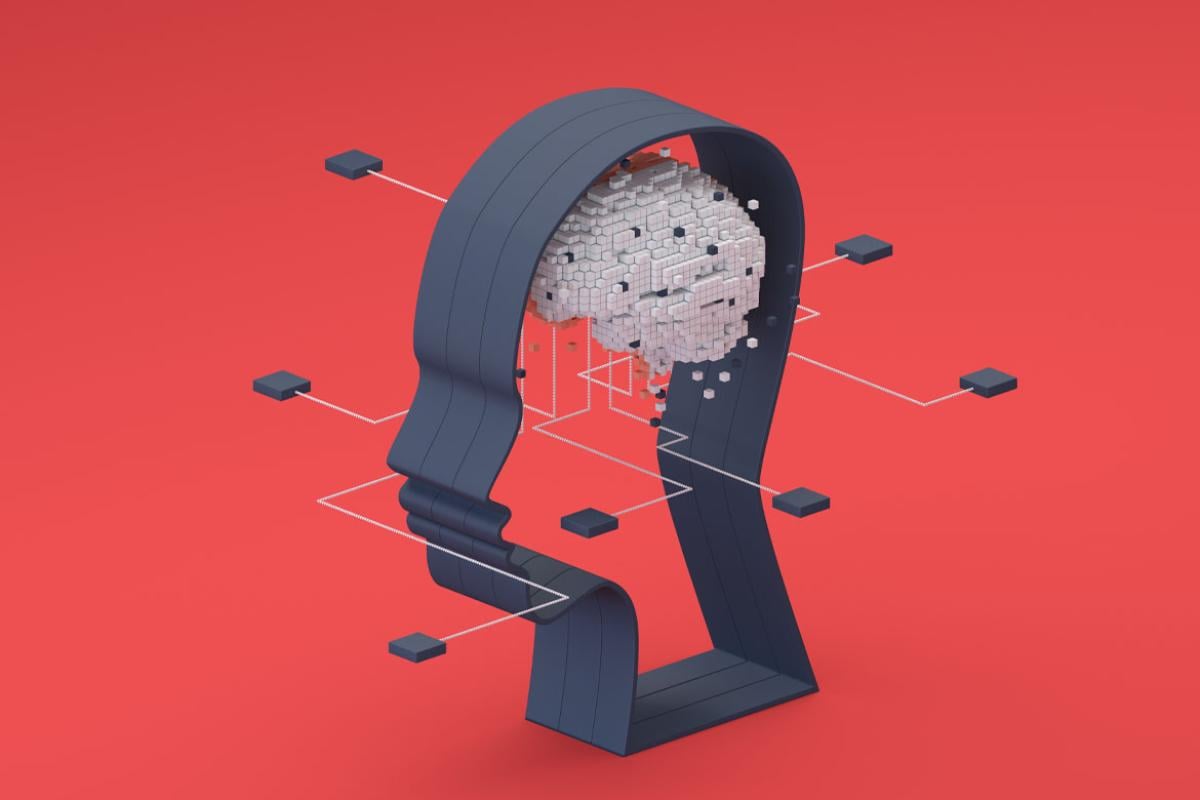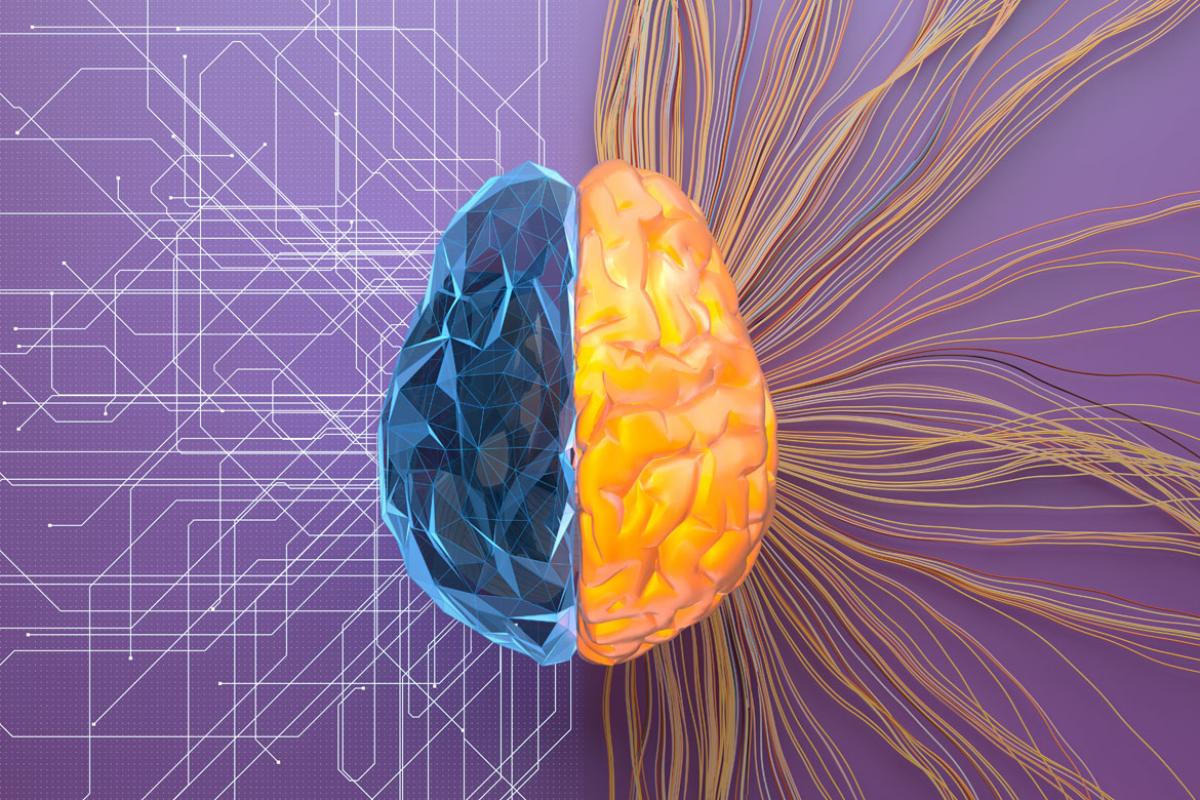- Artificial intelligence vs. augmented intelligence
- AMA policy on AI development, deployment and use
- Physician sentiments on AI
- AI in medical education
- Featured updates
- CPT® and AI
- Health care AI news
- AI and practice management
- AMA Board reports and policy
- AMA STEPS Forward® Resources on AI
- AI learning on Ed Hub and JAMA Network™
Artificial intelligence vs. augmented intelligence
The AMA House of Delegates uses the term augmented intelligence (AI) as a conceptualization of artificial intelligence that focuses on AI’s assistive role, emphasizing that its design enhances human intelligence rather than replaces it.
AMA policy on AI development, deployment and use
The AMA is committed to ensuring that AI can meet its full potential to advance clinical care and improve clinician well-being. As the number of AI-enabled health care tools continue to grow, it is critical they are designed, developed and deployed in a manner that is ethical, equitable and responsible. The use of AI in health care must be transparent to both physicians and patients.
In addition to medical devices, AI is increasingly used in health care administration or to reduce physician burden, and policy and guidance for both device and non-device use of health care AI is necessary. Recognizing this, the AMA has developed new policy (PDF) that addresses the development, deployment and use of health care AI, with particular emphasis on:
- Health care AI oversight
- When and what to disclose to advance AI transparency
- Generative AI policies and governance
- Physician liability for use of AI-enabled technologies
- AI data privacy and cybersecurity
- Payor use of AI and automated decision-making systems
Physician sentiments on AI
In 2023, the AMA conducted a comprehensive study of over 1,000 physicians’ sentiments towards the use of AI in health care including current use and future motivations for use, key concerns, areas of greatest opportunity and requirements for adoption. Given the rapidly evolving AI landscape across health care, the AMA repeated the study in late 2024 (PDF). The objectives of this research remain:
- Capturing the sentiment among practicing physicians regarding the increased usage of AI in health care
- Evaluating AI use cases based on their familiarity, relevance, and usefulness
- Identifying key resources and areas of need for physicians to consider implementation of AI tools to their practice
Physicians largely remain enthusiastic about the potential of AI in health care, with 68% seeing at least some advantage to the use of AI in their practice, up from 65% in 2023. We also saw use of AI increase from 38% in 2023 to 66% of physicians reporting they use some type of AI tool in practice in 2024.
However, there are still key concerns as physicians continue to explore how these tools will impact their practices. Implementation guidance and research, including clinical evidence, remain critical to helping physicians adopt AI tools.
AI in medical education
AI is playing an increasingly important role at all stages of the medical education continuum, both as a tool for educators and learners and as a subject of study in and of itself. AI has the potential to transform the educational experience as a part of precision education and transform patient care as a part of precision health. Learn more about how AI can impact medical education.
Featured updates
AMA partners with technology and health care leaders to bring physicians critical insights on AI's potential applications and ensure that physicians have a voice in shaping AI's role in medicine.
- In October 2025, AMA launched the Center for Digital Health and AI to put physicians at the center of shaping, guiding and implementing AI tools and other technologies that are transforming medicine.
- AMA welcomes the federal government's new 2025 action plan on AI and the opportunity to work with the administration to address key areas in shaping AI regulation, policy and implementation. Learn more.
- An AMA issue brief (PDF) provides a brief overview of recent state legislative activity and discusses three key AI policy areas for state legislative/regulatory activity: health plan use of AI, transparency and physician liability.
- To develop actionable guidance for AI in health care, the AMA reviewed literature on the challenges health care AI poses and reflected on existing guidance. These findings are published in a paper in Journal of Medical Systems: Trustworthy Augmented Intelligence in Health Care.
CPT® and AI
The current CPT® code set drives communication across health care by enabling the seamless processing and advanced analytics for medical procedures and services.
AMA offers several resources to provide guidance on the updated CPT® code set for classifying various AI applications as well as advisory expertise through the Digital Medicine Payment Advisory Group (DMPAG). DMPAG identifies barriers to digital medicine adoption and proposes comprehensive solutions on coding, payment, coverage and more. Stay up-to-date on the criteria for CPT® codes, access applications and read frequently asked questions.
Health care AI news
Learn how AI is being used in health care as the medical community’s understanding of AI grows.
AI and practice management
The technological capacity exists for AI algorithms and tools to transform health care, but real challenges remain in ensuring that tools are developed, implemented and maintained responsibly in your practice. Learn more about the emerging AI landscape.
AMA Board reports and policy
AMA Board of Trustees is responsible for implementing AMA policy. Given the number of stakeholders and policymakers involved in the evolution of AI in health care, it is important that AMA not only adopt a base level of policy to guide engagement but equally continue to refine policy as this technology develops. AMA Board reports included here summarize the need for additional AMA policy on AI. Through the AMA PolicyFinder, users can search for current AI policy initiatives.
AMA STEPS Forward® Resources on AI
Physicians need help navigating the rapidly evolving role of AI in clinical practice. The AMA STEPS Forward collection of digital health solutions helps provide insights on integrating AI into workflows, reducing administrative burden, and enhancing patient care—all while addressing critical issues such as ethics, bias and physician well-being. By offering case studies, implementation strategies, and expert perspectives, the AMA equips physicians with the knowledge and tools to adopt AI responsibly and effectively. Explore the following open-access, CME-eligible resources to stay ahead of the curve in digital health.
AI learning on Ed Hub and JAMA Network™
Explore the components of AI in health care and delve into the potential challenges and opportunities for physicians. An AMA Ed Hub™ article explores how AI, used ethically, has the power to serve as a transformative and powerful tool for physicians.



























